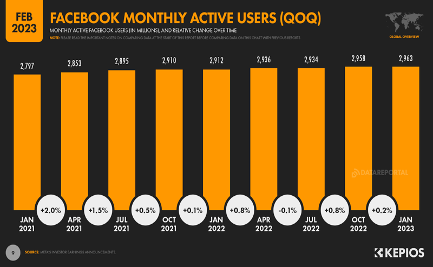In today’s digital world, maintaining proper social media etiquette is essential. It not only shapes our online presence but also nurtures relationships and facilitates successful business interactions. This etiquette also provides a roadmap for what to share, guiding us toward the kind of content that resonates with our audience. Moreover, it dictates how to engage with others—be it through comments, likes, or shares—fostering a sense of community. Equally vital, it delineates what to steer clear of, preventing any unintentional missteps.
Social Media Platforms
Since the first social media networks were established, people have gone on to create new ones. Social media platforms vary. Six Degrees, the first identifiable social media site, was founded in 1997. Users had the opportunity to create profiles and connect with others thanks to it. After it was shut down in 2001, a number of other social networks have appeared, all of which make life easier for people today.
Today’s most widely used social networks are Facebook, Instagram, TikTok, and LinkedIn. This graph from Data Portal shows how one of the most popular social networks in the world, Facebook, grew its member base. The statistics indicate that, in January 2023, there were 2963 billion active users.
The most used app for sharing images and videos is Instagram. 1.28 billion people used Instagram actively in 2022, according to studies. TikTok is another popular video-sharing platform where individuals post short videos. The platform is now available in 154 countries and has over one billion active users globally. LinkedIn is incredibly popular for professional networking. LinkedIn registered an annual revenue of $14.5 billion in 2022, with 900 million users worldwide as of 2023.
What is Social Media Etiquette?
Rules are part of everyday life, and this also exists in social networks. Social media etiquette is precisely a collection of principles that define how individuals and companies behave on social media. It includes conventionally spoken and unspoken social guidelines for individual and business behavior online.
History of social media etiquette
As social media platforms rose in popularity and became more integrated into our everyday lives, social media etiquette developed. And as social media’s influence grows, etiquette guidelines also evolve to match new societal norms and expectations.
The following are some crucial developments in the social media rules:
- Users began to set their own conventions and criteria for behavior as online communities began to form on social media sites. This resulted in the creation of guidelines for sharing information, leaving comments, and interacting with people on these platforms.
- With the rise in the popularity of social media, cyberbullying has become a severe problem. This raised awareness about the need to be courteous on social media, and many platforms began to incorporate tools and regulations to prevent and combat cyberbullying.
- Social media evolved into a significant instrument for political debate and activity. As a result, disputes about free speech, hate speech, and online harassment heated up, leading to heightened scrutiny of proper social media conduct.
- The emergence of social media influencers resulted in new etiquette guidelines for sponsored material, transparency, and authenticity. Influencers are required to be upfront about their endorsements and to adhere to best practices in order to keep their followers’ trust.
The Dos of Posting on Social Media
1. Use Proper Grammar and Spelling
Using proper grammar and spelling helps people understand what you’re saying without any confusion. You come across as reliable and professional when you write well. Using incorrect grammar in social media posts can be detrimental to your brand. The fast-paced nature of platforms often leads to rushed communication, leaving little time for proofreading. Additionally, the informal atmosphere on social media can make users prioritize speed and convenience over perfect grammar.
Character limits, prevalent on platforms like Twitter, can also prompt users to condense their language, potentially sacrificing grammar for brevity. Furthermore, auto-correct features on devices may introduce errors, especially when typing on small screens. For non-native English speakers, proficiency levels can affect grammar usage, and some users may not have had access to formal education or language learning resources. While various factors contribute to this, clear communication remains crucial for effective interaction online.
2. Be Authentic
Authenticity holds immense significance in social media posts. It builds trust and credibility among your audience. People are more likely to feel a deeper connection when you’re sincere and true to yourself. Authenticity also helps establish a unique brand identity. It sets you apart from others who may be trying to project an image that isn’t truly representative of who they are. When authenticity is lacking on social media, it can have detrimental effects on trust and credibility.
For instance, if a lifestyle blogger consistently portrays a perfect, flawless life while masking struggles, their audience may eventually sense the disconnect. This can lead to a loss of trust, as followers value genuine, relatable content. In the long run, not being authentic can erode the very foundation of a social media presence, potentially resulting in a decline in engagement and support from the audience.
3. Engage Responsively
Engaging responsively is crucial to maintaining meaningful connections on social media. It shows you value and respect your audience’s input, fostering a sense of community and trust. When you promptly respond to comments, messages, and feedback, it demonstrates attentiveness and a genuine interest in the conversations happening around your content. This timely interaction not only strengthens relationships but also boosts your visibility on platforms where engagement rates impact algorithmic reach. Moreover, addressing questions or concerns promptly helps to prevent misunderstandings and potential negative sentiments.
Ultimately, engaging responsively is a cornerstone of a healthy, vibrant online presence, enhancing the overall experience for both you and your audience. Businesses that actively engage with their audience experience a significant increase in brand loyalty, customer retention, and lead generation. Engaged customers are also more likely to refer others to a company’s goods or services. These interactions may ultimately result in increased client satisfaction and earnings for the business.
4. Share High-Quality Content
It’s crucial to share high-quality material for the following reasons:
- It encourages consumers to believe and trust what you say about your goods and services.
- Your audience will remain interested and want more by receiving useful, simple-to-understand material. More likes, comments, and shares may result from this.
- Google and other search engines favor well-written, informative content, so it is more likely to show up in search results.
- Your audience may grow if readers find your content useful and are inclined to recommend it to their friends.
People enjoy reading content on social media that’s interesting, useful, and relatable. This means posts that provide helpful information, entertain, or inspire tend to grab attention. Visual appeal is also key, so eye-catching images or videos often do well. Keeping things concise and easy to digest is important, especially on platforms with limited characters. Finally, being genuine and upbeat can help you connect with your audience and gain their trust. So, when creating content, aim for a mix of relevance, engagement, and authenticity to keep your followers engaged and interested.
Try to create a strong online presence through social media that will impact your company’s overall success. It can be beneficial to collaborate with a social media marketer who is tapped into the industry.
How businesses use social media to their advantage:
- Personalization is very powerful since people are interested in messaging that appeals to their specific wants and needs.
- Video content is given a lot of klout in today’s world. Use videos to communicate brand stories, present products, and connect with customers.
- Influencer marketing can help brands reach new audiences and build trust with consumers.
- Artificial intelligence is up and coming. Use AI to create chatbots, analyze customer data, and automate email campaigns.
The Don’ts of Posting on Social Media
1. Avoid Oversharing
Sharing too much personal information on social media can pose risks to your privacy and security. The more information you provide, the easier it becomes for malicious actors to impersonate you or target you online. Oversharing personal details might lead to real-world risks, such as burglaries or stalking, especially if your location or daily routines are frequently disclosed. This can also produce long-term negative effects. Once something is on the internet, it can be challenging to completely remove it.
For example, Emina, a young professional, was excited about her upcoming vacation. She shared details on social media, including details about the exact dates of her departure and return, along with photos of her packed bags. Unfortunately, Emina had not adjusted her privacy settings, so her posts were visible to the public.
Unbeknownst to her, a shady person saw her posts and took advantage of this information. They broke into her home while she was away, knowing she wouldn’t return for several days. The burglar made off with valuables, causing significant distress and financial loss.
2. Don’t Engage in Online Arguments
Avoiding online arguments is a wise practice for several reasons. Such conflicts rarely lead to productive or meaningful discussions. Instead, they often escalate into heated exchanges that can damage relationships and create a hostile online environment. Additionally, engaging in arguments online can be emotionally draining and time-consuming, diverting energy from more positive and constructive activities.
Furthermore, public arguments can reflect poorly on your online image, potentially affecting your personal or professional reputation. Lastly, online discussions can lack important non-verbal cues, leading to misunderstandings and misinterpretations. Choosing to steer clear of online conflicts promotes a more positive, constructive, and harmonious online experience.
Conclusion
In conclusion, adhering to social media etiquette is fundamental in today’s digital landscape. It shapes our online presence, impacts relationships, and influences professional endeavors. Platforms like Facebook, Instagram, TikTok, and LinkedIn have become integral parts of our lives, offering unique opportunities for connection and business success.
Moreover, trends like personalization, video content, influencer marketing, and artificial intelligence are shaping the future of digital marketing. However, it’s crucial to exercise caution, particularly in areas like oversharing personal information and avoiding online arguments, to maintain a safe and secure online presence. Ultimately, following these guidelines ensures that our online interactions are positive and engaging, and contribute to a vibrant virtual community.






